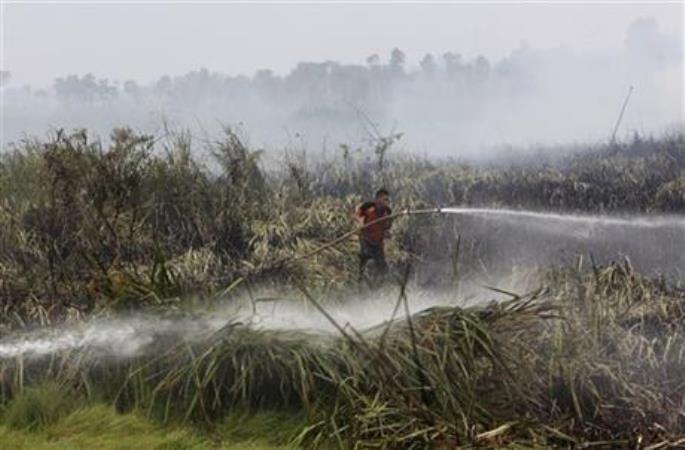
Indonesian police said Thursday they have named seven companies and 133 individuals suspected of causing forest fires that are spreading choking smoke and polluted air across parts of western Indonesia and neighbouring Malaysia and Singapore.
National Police spokesman Col. Suharsono said 27 more companies and 85 individuals are still under investigation by police task forces in six provinces in Sumatra and Kalimantan on the Indonesian part of Borneo.
President Joko Widodo has ordered law enforcement agencies to take "stern actions" include revoking their forest concessions and blacklisting those responsible for the fires.
"There are seven corporates and 133 individuals who have been named suspects," said Suharsono, who uses a single name. "Those from the corporations include general managers and operational managers."
Some suspects have been arrested but he did not say how many.
In Pekanbaru, the capital of peat-rich Riau province, police arrested general manager of PT Langam Inti Hibrido, a palm oil plantation company. He was the only executive known to be arrested so far in the cases.
Suharsono said in all police are handling 148 cases, of which the dossiers of 25 cases have been finalized, Suharsono said without specifying when they would be filed to the courts.
He said the suspects would be charged with violating the Environment Law and Forestry Law, which carry a maximum 15-year imprisonment and a fine of about $700,000.
Indonesia is mobilizing thousands of soldiers, police, firefighters and volunteers to extinguish fires and is sending 21 aircraft to conduct cloud seeding and water dropping.
Peat-rich Riau province declared an emergency Monday because the bad air quality was threatening people's health and disrupting flights and other activities.
More than 100,000 people have been affected with acute respiratory infections in South Sumatra and South Kalimantan provinces.
Slash-and-burn practices destroy huge areas of Indonesian forest every summer during the dry season, creating haze that angers surrounding countries. The fires are set to clear land for farming, corporate development or oil palm plantations.
